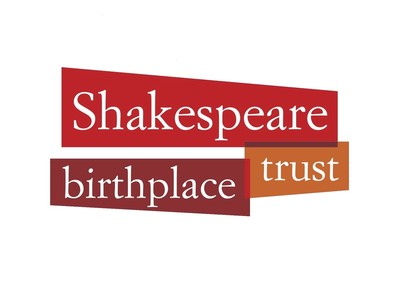About
The Shakespeare Birthplace Trust is the independent charity that cares for the world’s greatest Shakespeare heritage sites in Stratford-upon-Avon, and promotes the enjoyment and understanding of his works, life and times. The Shakespeare Birthplace Trust was formed in 1847 following the purchase of Shakespeare’s Birthplace as a national memorial. The Trust now cares for five beautifully preserved homes and gardens directly linked to Shakespeare and his family in Stratford-upon-Avon. Through the five historic Shakespeare family homes, our Designated Collection, award-winning learning programmes, research projects, creative programming, and digital channels, we provide imaginative, immersive and interactive opportunities for people of all ages and backgrounds to connect with Shakespeare and what he has come to mean in our world.
Mission Statement
“Bringing Shakespeare to life by leading the enjoyment, appreciation and understanding of Shakespeare's work, life and times across the world.”
Ways that the Shakespeare Birthplace Trust is already practicing green heritage
We are the first Shakespeare heritage organisation to join #EarthShakes, encouraging other like-minded heritage and cultural organisations to follow suit. We will continue using Shakespeare’s works and his enduring legacy to champion our environmental aims and activity with audiences across the globe. We have taken a number of steps to make our sites greener, including transferring our energy contracts to a 100% renewable supplier for both gas and electricity, ensuring our main waste collection contractor has a zero-to-landfill policy (everything is either recycled or sent to a heat/energy plant in Rugby), removing single use plastic bottles from our retail offer. Our farm is currently in the High Level Stewardship Scheme and we hold a Soil Association Gold Award. We work with local bee keepers and currently have hives at Anne Hathaway’s Cottage. Similarly, Pershore College harvest apples from our orchards to produce juice and cider, while the Shakespeare Distillery harvest our mulberries for their gin. All of these products, along with honey from our bees keepers’ hives, including those at Anne Hathaway’s, is sold, seasonally, in our shops. As an Arts Council England National Portfolio Organisation, we benchmark our energy and water usage through Julie’s Bicycle, a not-for-profit organisation that works with arts and cultural agencies to take action on the climate crisis.
Ways that the Shakespeare Birthplace Trust highlights local or global ecological issues
Our Environment Policy was drafted in 2019 and a Green Team, drawn from our employees, met to implement its aims. This policy has recently been revised to include a new commitment to be carbon neutral in our own emissions by 2030 and will form the heart of our new environmental responsibility programme for staff, volunteers and visitors. We achieved Planet Mark status for the first time in 2019 and are publicly listed on their website. As a result they protect one acre of Rainforest in Northern Peru on our behalf. Our gardening and farm teams use environmental techniques, such as composting our own plant material and using nematodes to treat Box Blight, in our gardens and use signage to educate our visitors of techniques they could use at home. We have a large designated wild flower meadow at Mary Arden’s Farm as well as other green sites our visitors can access. We have been collaborating with a local hedgehog rescue project – Hedgehog Friendly Town and over the last five years, we have released over 40 rescued hedgehogs back into their habitat at the farm or in the woodland areas of Anne Hathaway’s Cottage. We have begun working with our local Wildlife Trust to develop this approach further and to collaborate other projects which would have a positive effect on local biodiversity and environmental management.
What are the Shakespeare Birthplace Trust's eco-theatrical goals and aspirations for the future?
Our renewed Environmental policy states that we will be carbon neutral in our own emissions by 2030. Our policy has four areas to help us achieve our aims: Communicating and Collaborating, Encouraging Biodiversity, Becoming Sustainable and Measuring our Impact. It states that we will “Celebrate and explore Shakespeare’s connection to the natural world as a way of embedding environmental issues at the heart of what we do.” The support, advice and collaboration of other groups in achieving these goals will be the help we need. We shall continue to listen to our audiences about all matters to do with green-issues.

